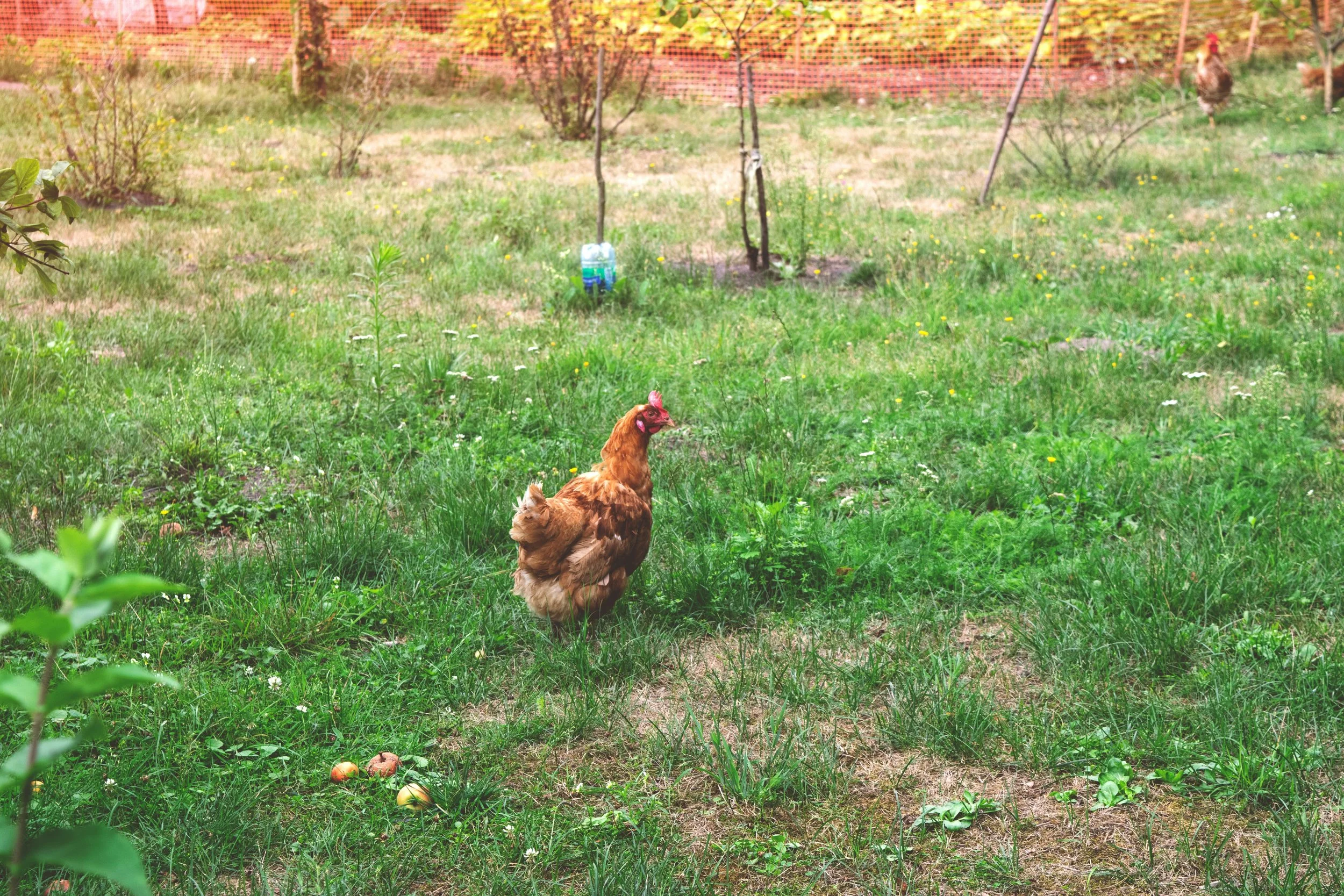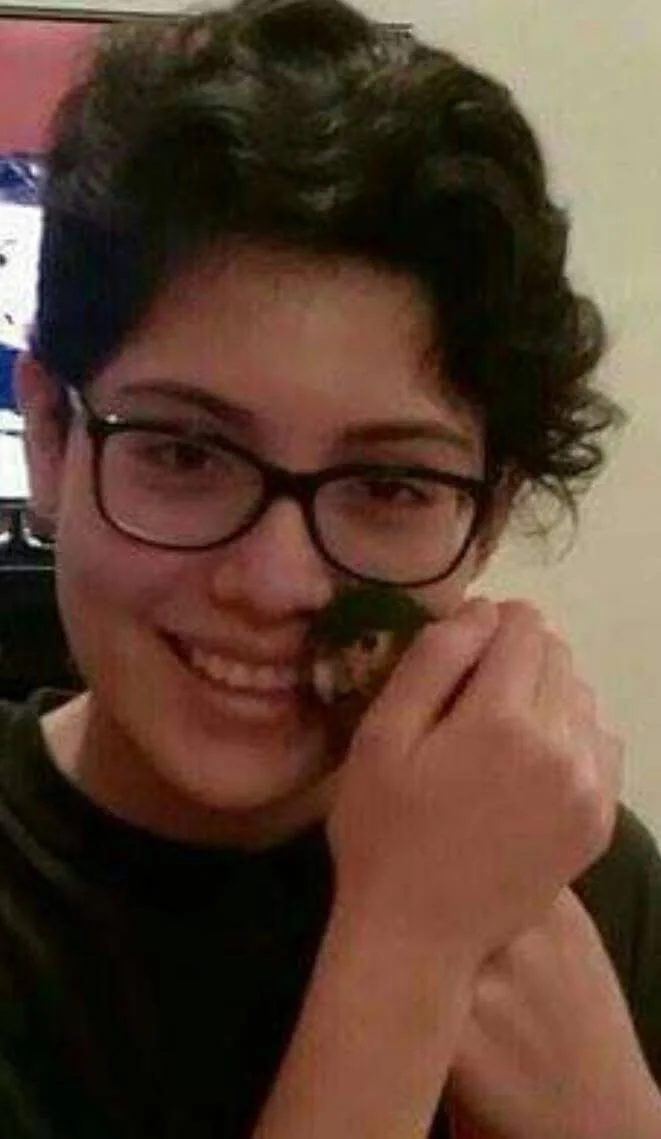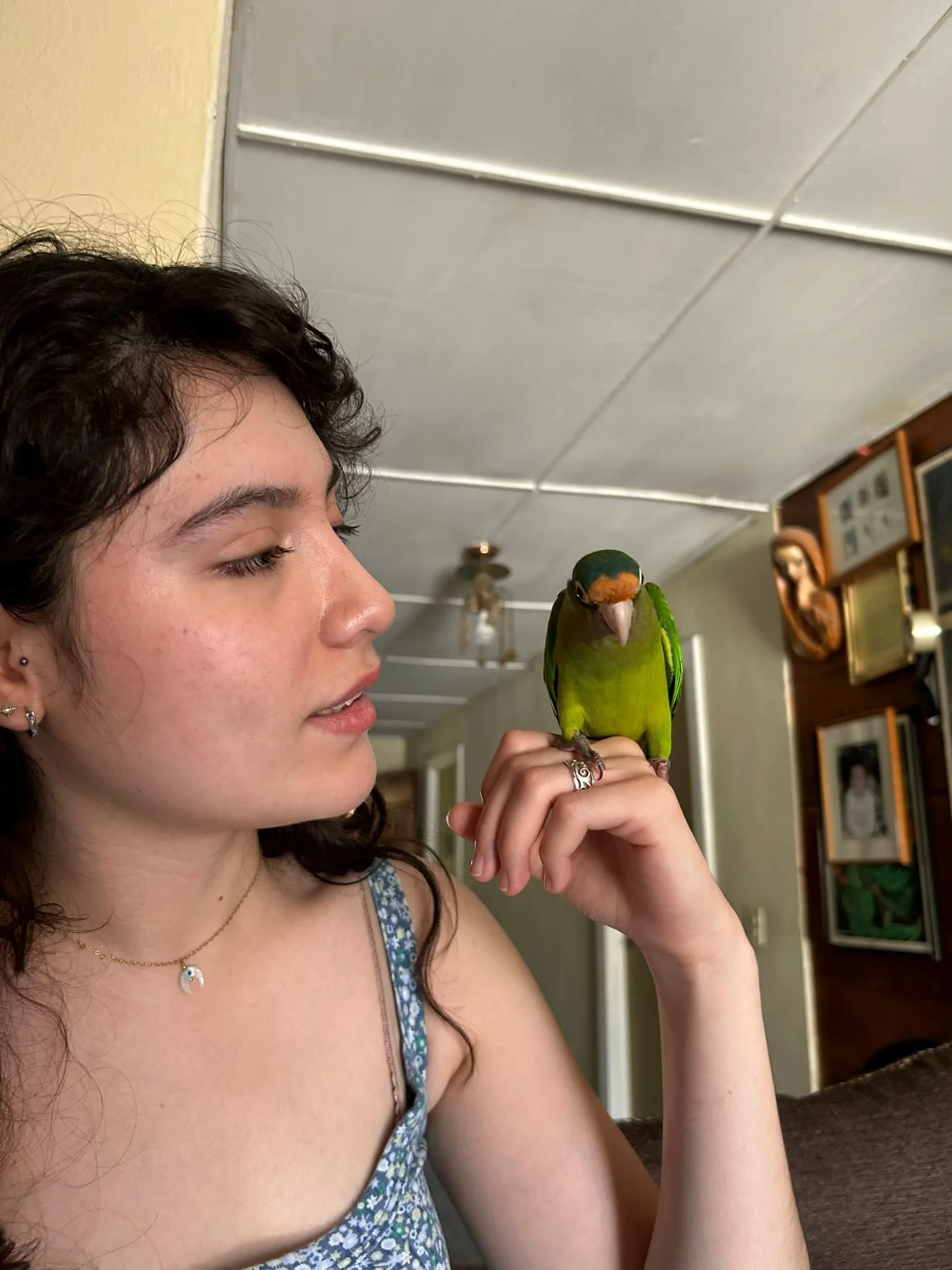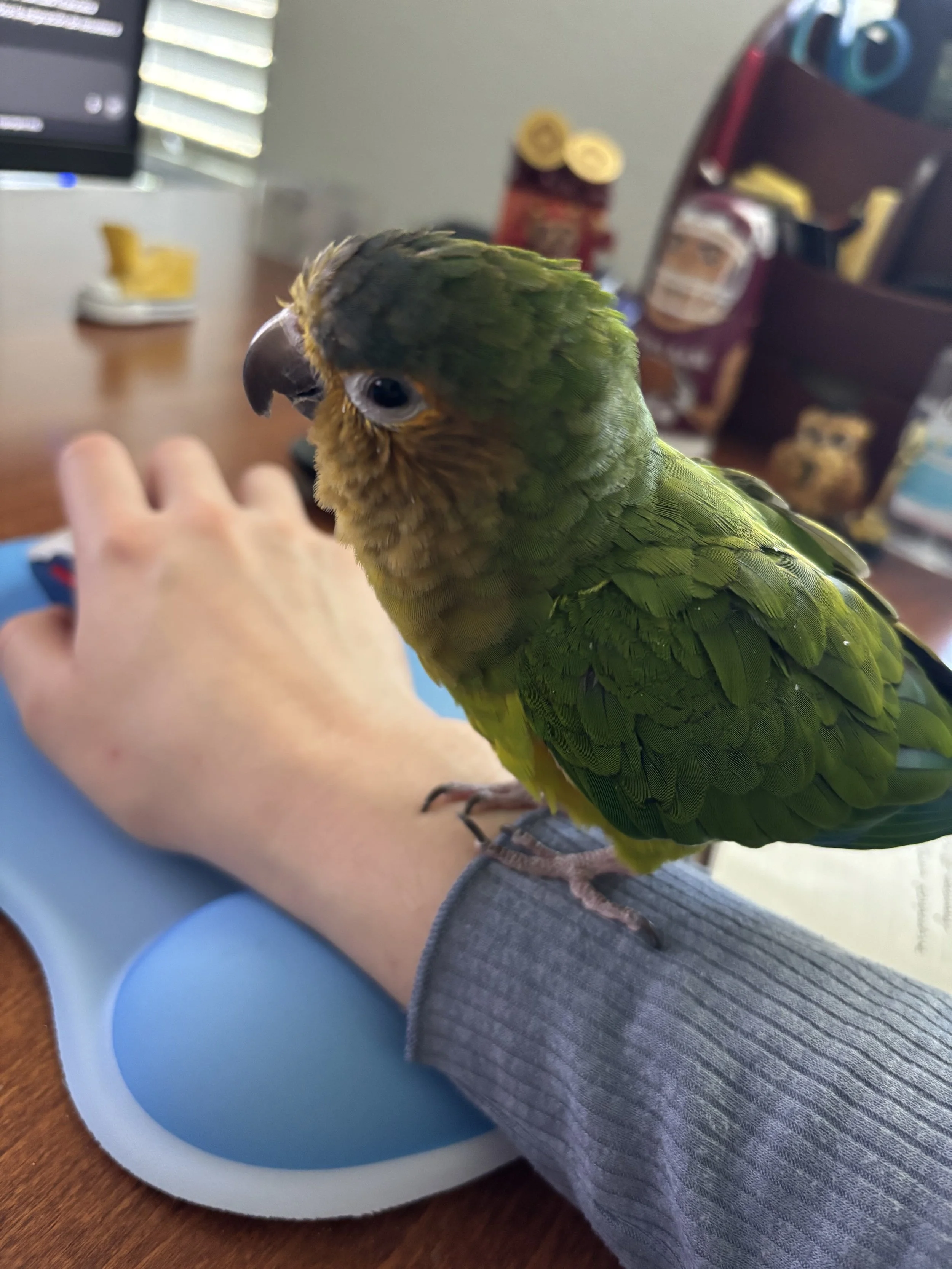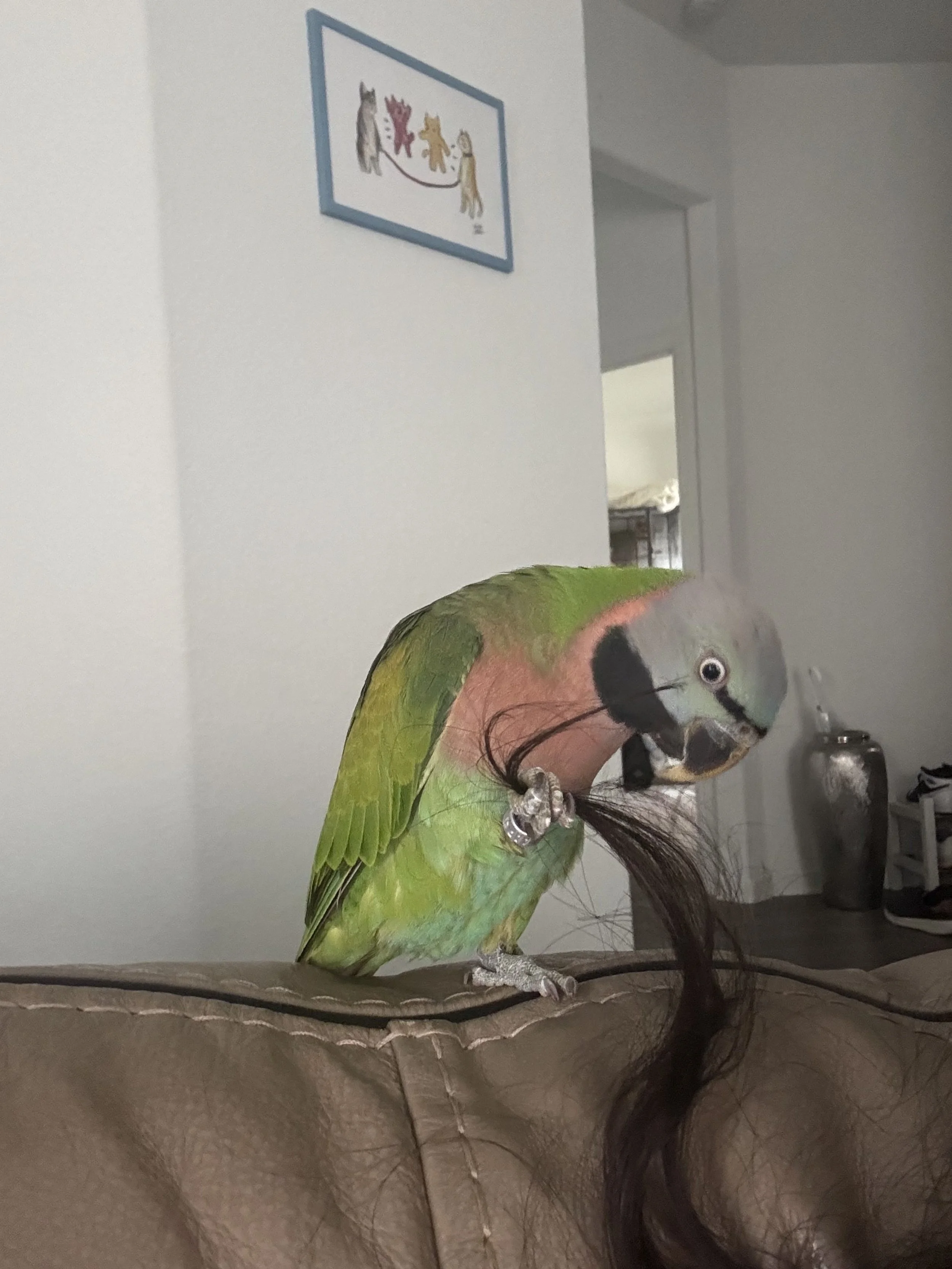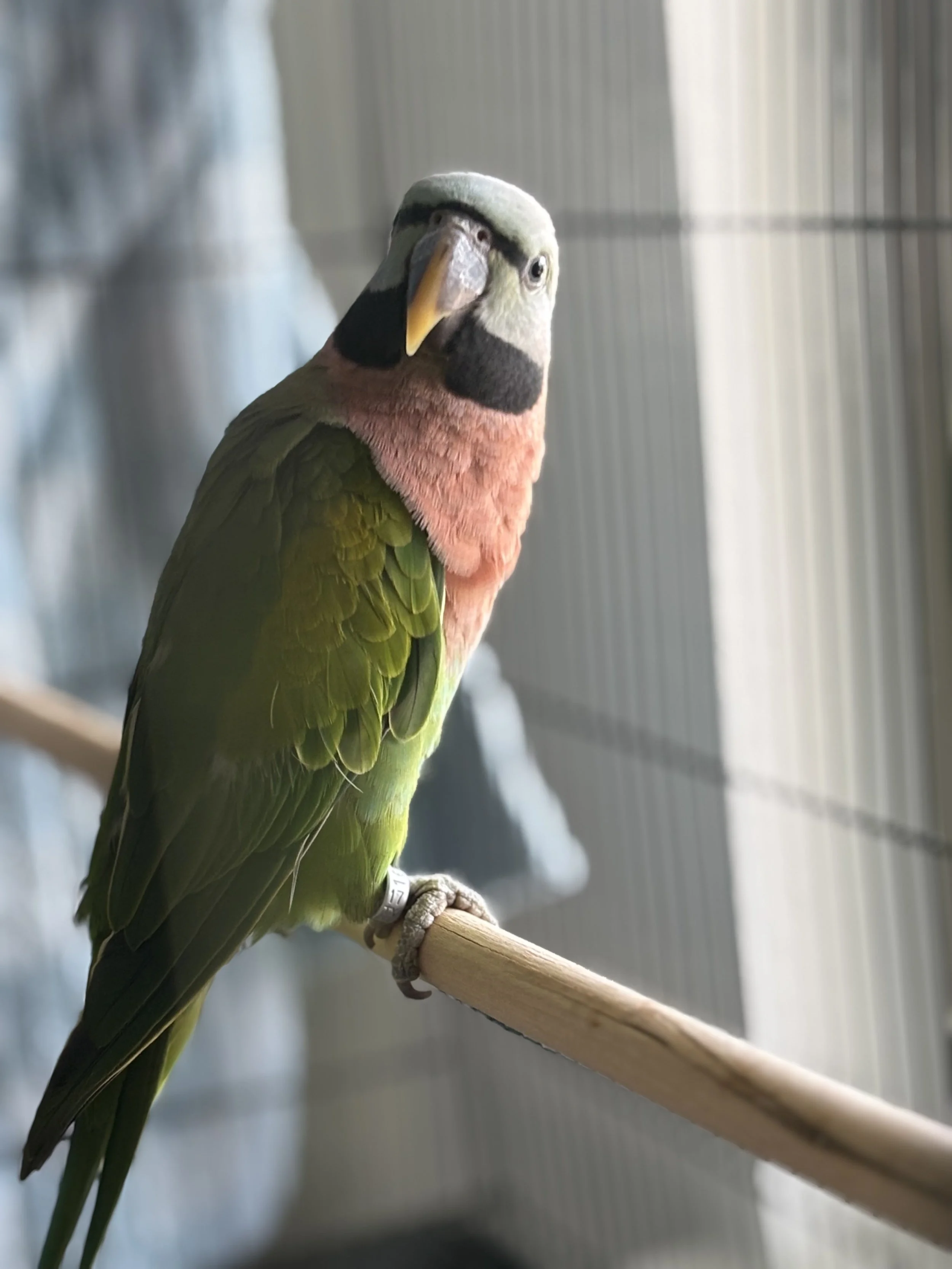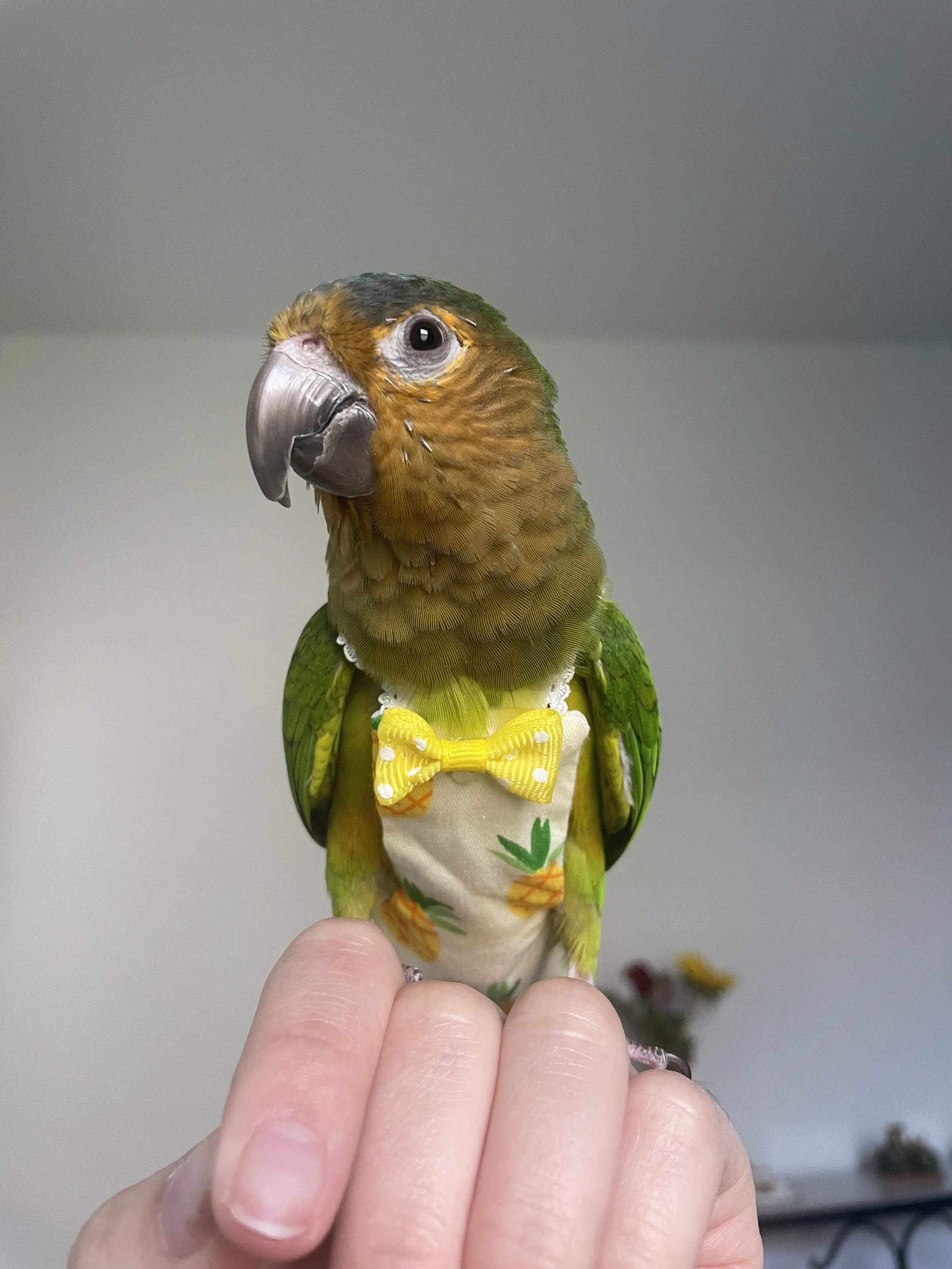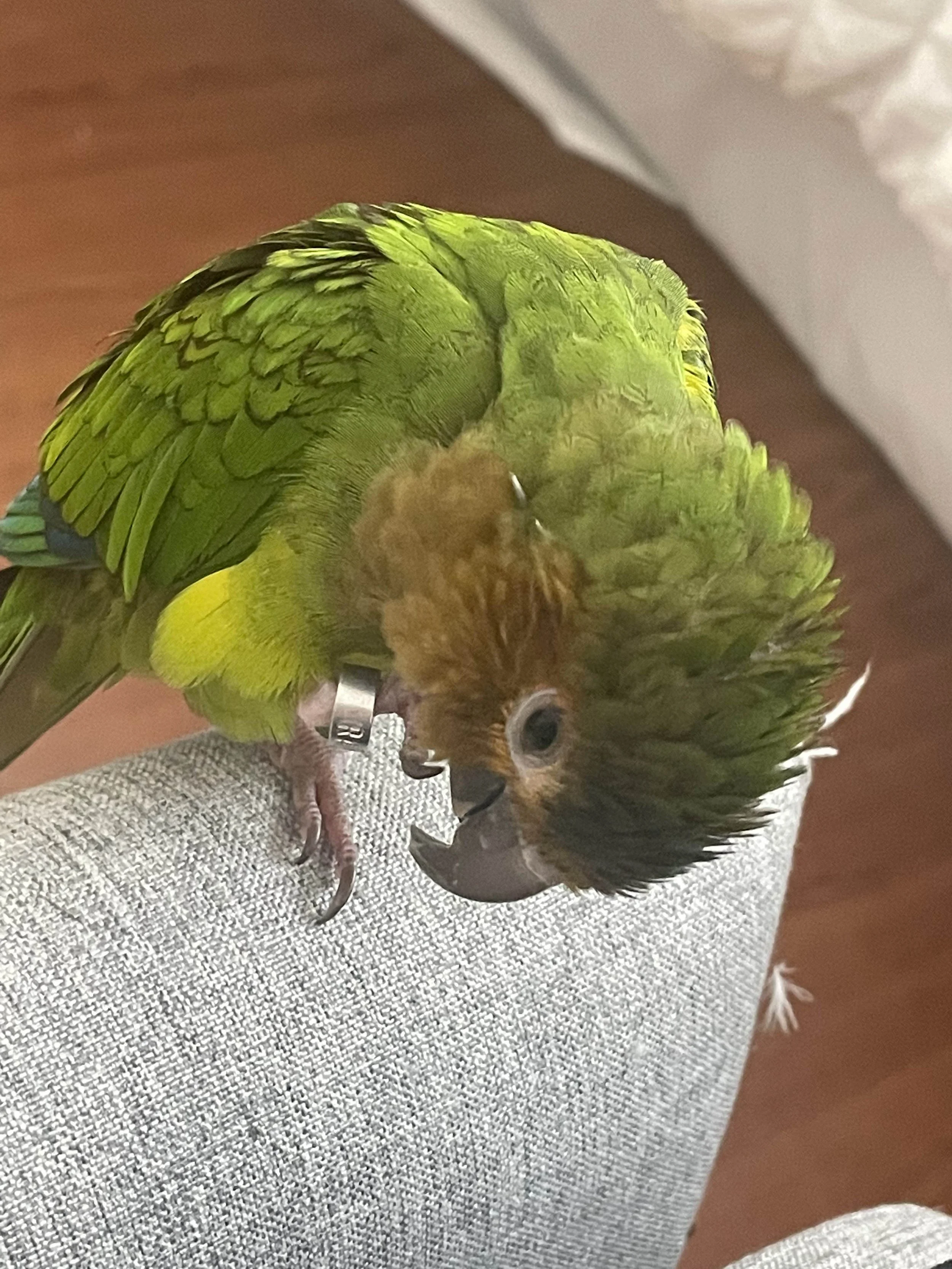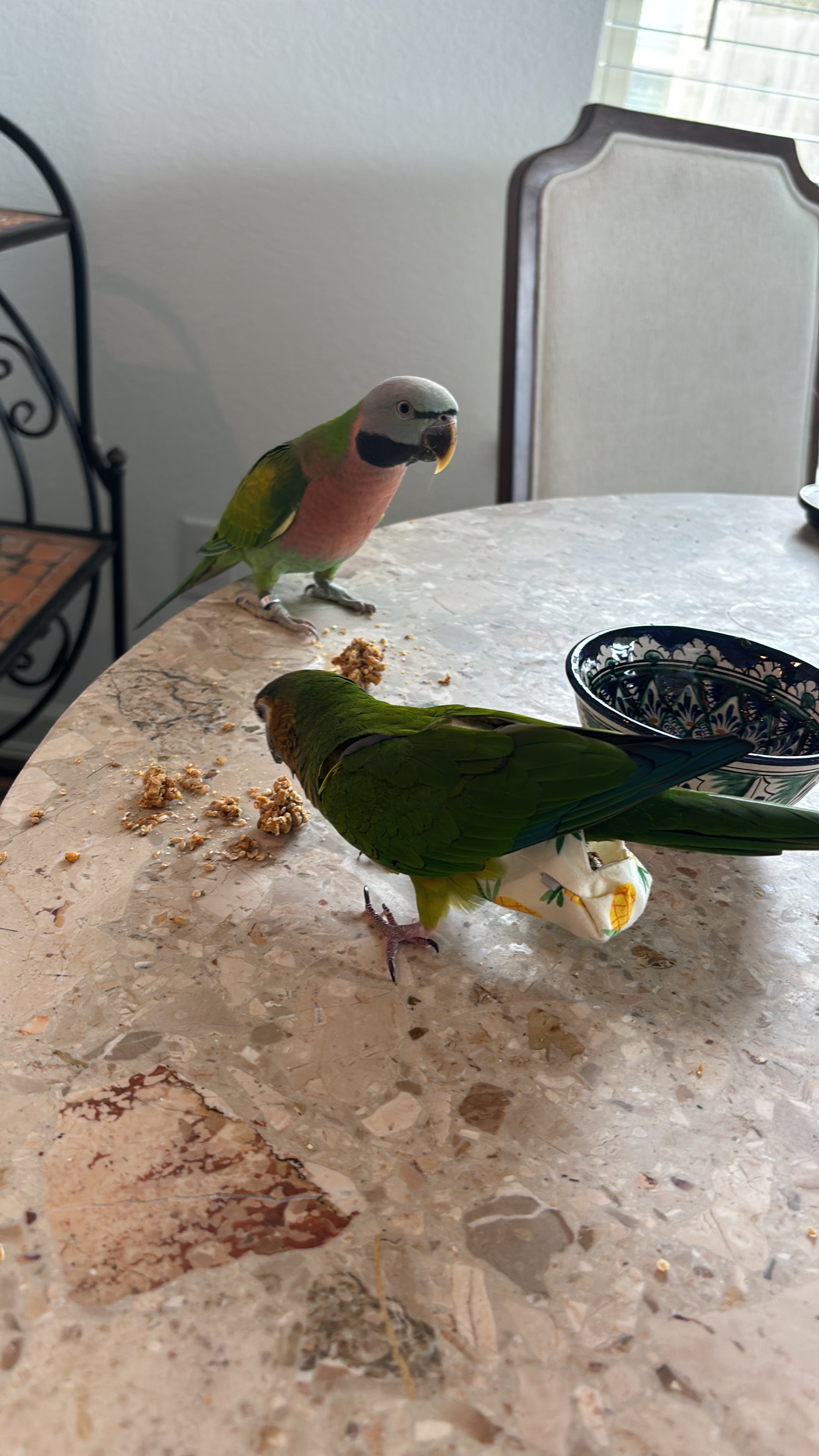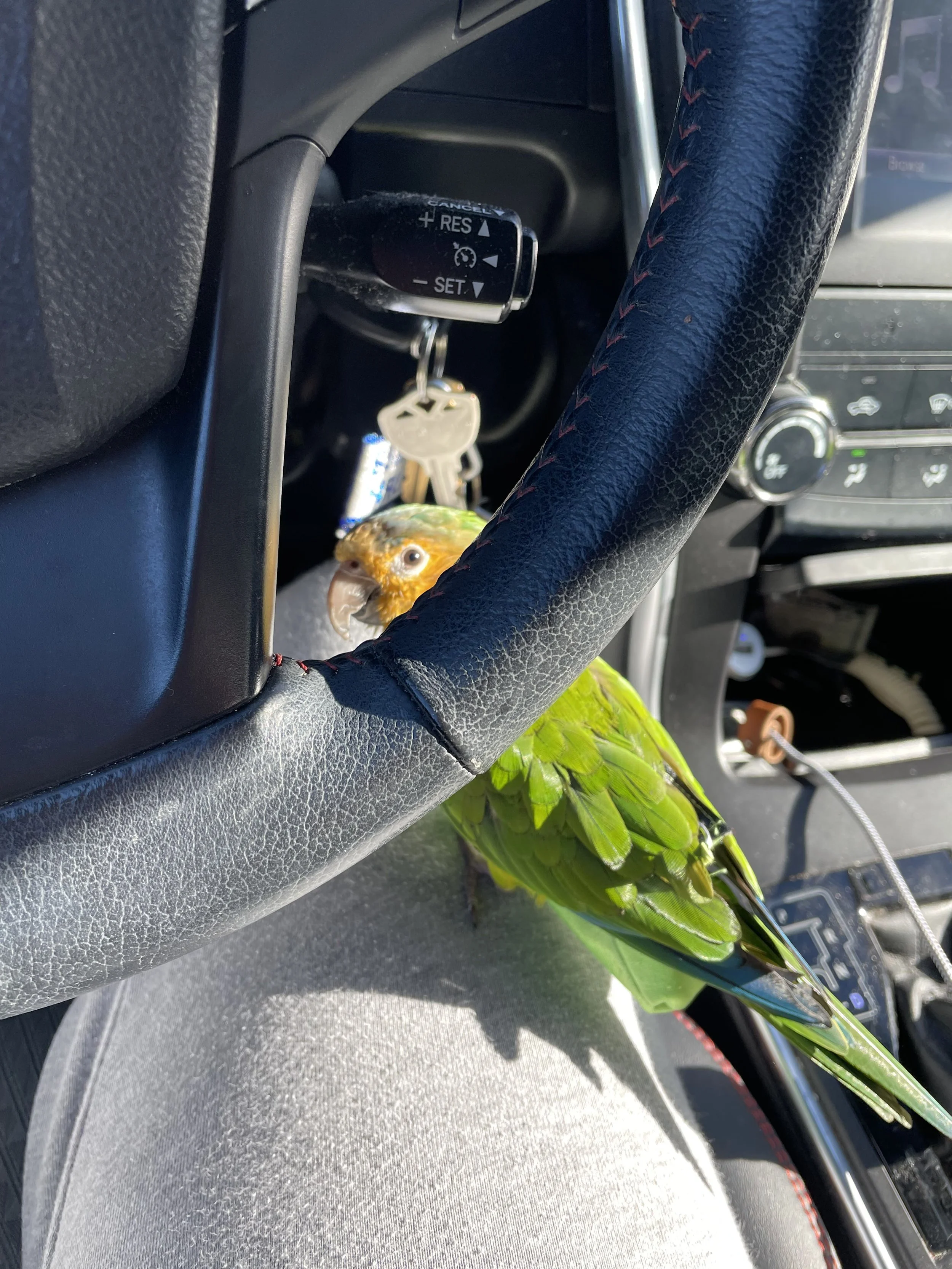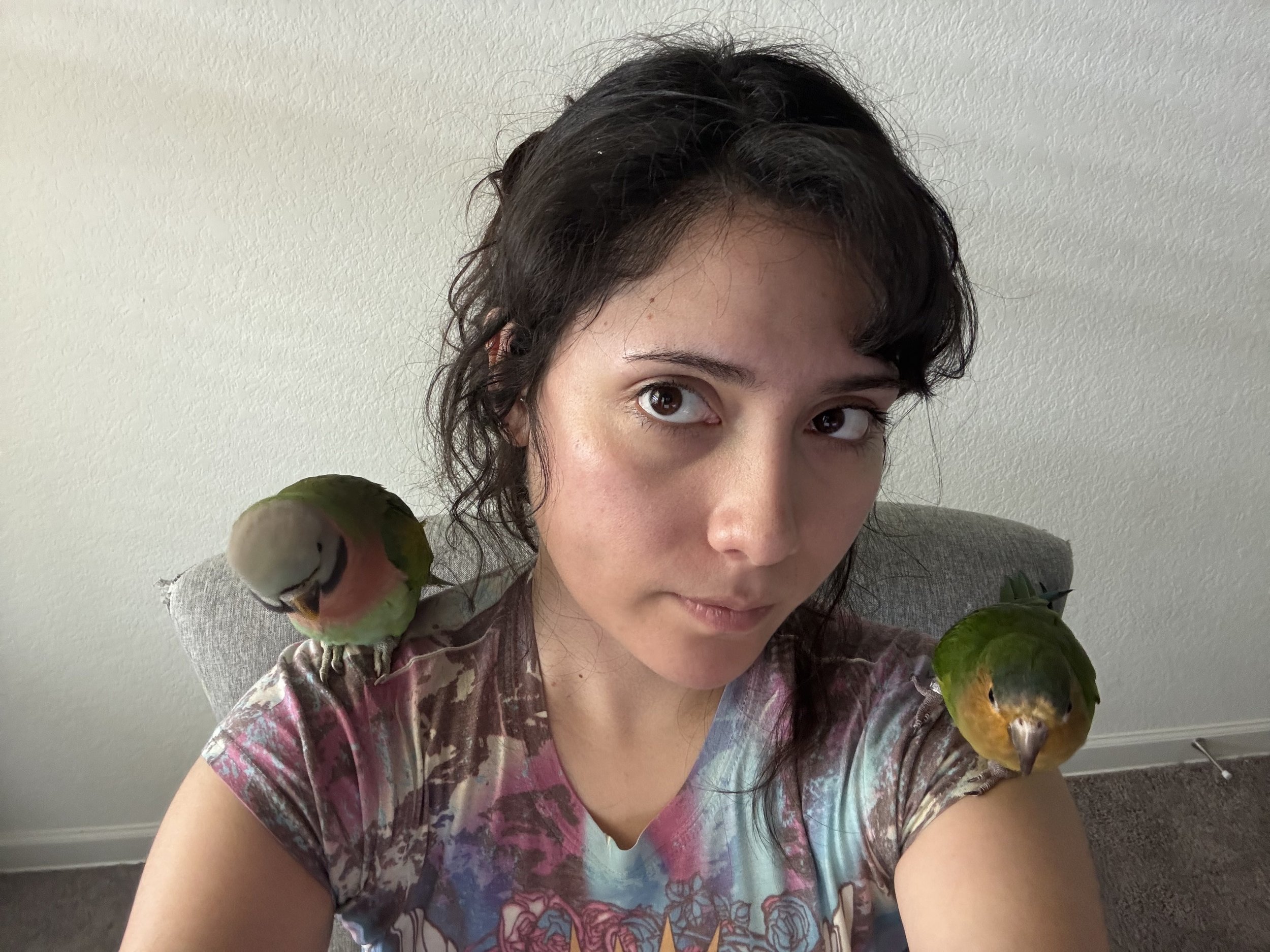Can You Really Bond With Birds?
When your childhood is filled with “unconventional” pets, it’s not surprising that you’d continue the trend into adulthood.
What might be surprising though, is how you end up viewing them differently once they rely on you for their survival.
That’s exactly what happened with Melannie Lopez, graphic designer and bird mom to two colorful boys.
“I had always grown up with animals in my backyard. We had turkeys, chickens, roosters… we also had rabbits. And we had the tiny parakeets, the budgies, too.”
But when she was 14, she wanted something different: a dog. Living in an apartment with limited space, her mom gave an undebatable “no.”
So Melannie considered what the next best thing would be. And for her, it wasn’t a cat.
It was a bird.
An experience she never expected
“Birds are pretty common in Guatemala, and with a lot of my family–it's such a Hispanic thing to have birds. But they were always treated as ornaments.”
Having a bird seemed like a no-brainer to Melannie–and her mom. But what her mom didn’t realize is that Melannie’s vision of bird ownership would be different than the norm.
Looking back, the way she found her bird was pretty sketchy too.
A man on the side of the road in Houston, TX had a tent filled with birds. After showing Melannie and her dad a few, he pulled out a beautiful Brown-Throated Conure. “I got this one yesterday, and he’s legal!”
“It was Chicho. 6 weeks old in a box. Can’t walk, can’t do anything. I weaned him so I had to feed him through a syringe, you know, like baby formula. I should not have been doing all that at 14, but he lived!”
Besides what she learned through her culture’s view on birds–and what she researched on her own before getting one–she didn’t really know much going into it.
All she knew is that she wouldn’t be keeping her new bird in a cage all day.
A unique connection based on trust
“You go into bird ownership and you think, oh, they're gonna talk. They're gonna not poop everywhere. They're gonna be easy. Or you know, they just sit in their cage and they'll be good, right? But birds are SO emotionally complex.”
Even after reading up on how to care for birds, Melannie never knew she could actually bond with them.
That was one of the most unexpected realizations… and one of the most rewarding.
Their connection almost came naturally, starting with the very fact that she had to wean him, and continues to strengthen even after 9 years together.
They developed their own form of communication with simple gestures, noises (from Chicho), and words (from Melannie) to express what they want.
“He knows how to ask me for food. If I leave the room, he starts screaming like they do in the wild. They socially call each other like, ‘just making sure you're still there.’ He follows me around and always has to join me. It's not that way with everybody.”
And now, their newest family member Pistachio, a Mustache Parakeet, has a strong relationship to learn from.
Coming from a sanctuary, he’s a nervous baby who’s in the process of gaining trust with his new humans.
But even little moments, such as when he sits on Melannie’s shoulder and gently preens her hair, shows her that he’s starting to feel like part of the flock.
Giving them love…
When it comes to showing up for her birds, Melannie definitely spoils them.
For breakfast, she makes them “chop,” a mixture of quinoa and finely chopped veggies they enjoy in addition to their seed.
Chicho gets ready with her, taking a bath in the sink while she does her makeup.
He’ll also throw a fit if he can’t join her when it’s time to go.
They both fly freely, have plenty of toys and enrichment, and their own personal bird trees to play with and perch on.
Pistachio gets to sit on her monitors as she works (which are covered in paper towels, because you know…)
Chicho has customized diapers (one looks like a tuxedo) and Pisatcho will get some too, once he’s more trusting.
And of course, they’re both insured because avian vet care is expensive! But that’s something she’d never skimp out on.
…And getting it back
“That’s supposed to be a huge bonding moment for parrot owners and their birds because it’s like, I’m doing what they do in the wild. And that’s why they preen me.”
Working from home allowed Chicho to form trust with Melannie almost instantly, and Pistachio is well on his way.
With trust, comes connection and love, and there are definitely ways she feels that from them.
Preening, and physical touch in general, is a big sign of trust as it’s what they do in the wild with birds within their community.
“Unlike dogs, you can’t just go up and start petting them. Birds need to do it on their terms. Chicho will put his head down for me when he wants pets.”
Other actions, like hand feeding, also take a lot of patience and trust to work toward. Chicho has been doing it his whole life but when Pistachio finally took food, it was a big deal.
“Now they’re both greedy and I can’t eat in peace.”
Birds don’t come without challenges
“I think they're very rewarding, but they come with a very unique set of needs that people who are used to dogs and cats wouldn't be used to, and that could be pretty challenging.”
Birds thrive in routine (as do many pets) so taking a vacation or being away for longer than usual can throw them off.
Plus, their cages are often large and filled with a lot of components so it’s not as easy to transport them when it’s time to stay somewhere else for a while.
They’re also very messy.
“You’re always cleaning up after them. They throw food, they throw water, they destroy things.”
Their fragile respiratory systems pose a challenge too. Simple things like burning candles or cooking with Teflon can harm them.
Chicho had never been around another bird so when they brought Pistachio home, he had to be quarantined for a month to make sure he didn’t bring in any diseases.
And if you’ve ever seen a bird with missing feathers, the plucking that caused that can be frustrating too, mostly for the bird.
Stress and hormones can cause this undesired behavior so as a bird owner, it’s just another thing to always be on the look out for.
Even with the challenges, comes a bond like no other
“I always think about–especially with Chicho–what am I gonna do when he's gone? I can't imagine my life without him.”
Chicho has been around for some of Melannie’s biggest life moments. He was there all through high school and her undergrad, and well into starting her career.
During some of the most difficult times, she was never really alone.
And because of their unique needs, she’s found that they give her purpose too.
“When I’m working from home, they provide so much company and entertainment. I have something to take care of, because I enjoy taking care of things.”
The fact that both Chicho and Pistachio could live to be about 30 years old is even more reason to invest the time, patience, and compassion needed to keep them happy for the rest of their lives.
Ensuring care for any pet’s unique needs
Birds take a lot of specialized care, there’s no doubt about that.
So if something were to happen to you, would they continue getting the care they need to thrive?
Not just anyone is up to the task of caring for someone else’s pet, regardless of the type, especially with the level of love and care they’re used to.
Whether you’re an avid bird lover, or you stick to more common pets like cats and dogs, putting a Cotl plan in place ensures your pet is taken care of, just the way they’re used to, no matter what happens to you.


